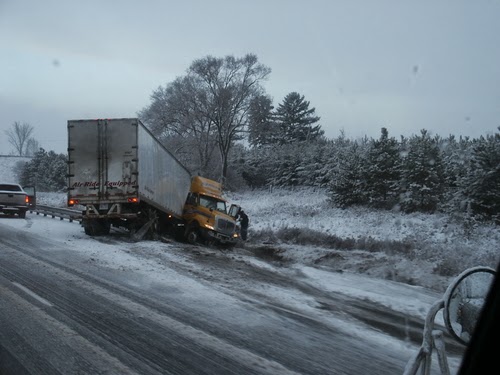If you are planning to take a long distance trip this winter,
it’s important that you properly prepare before leaving and make smart choices
while on the road. Read our tips to help keep you and your loved ones safe
while traveling during the winter season!
Preparing for Your Trip
- Perform routine maintenance on the car and get your tires checked
- Get your windshield washer fluid and antifreeze refilled before leaving
- Charge your cell phone battery and pack a charger that can be used in the car
- Put an emergency kit in the trunk that includes a flashlight and extra batteries
- Pack extra blankets, jackets, boots, and gloves
- Pack chains if there is a chance that snow could fall on your route
- Have a list of emergency numbers, including AAA
- Map out your route and plan for traffic and inclement weather
- Inform someone of your destination, planned route, and estimated arrival time
- Pack plenty of snacks and water bottles for you and your passengers
- Get a good night’s sleep the night before leaving
- Give yourself plenty of time to reach your destination
Stay Safe While Driving in the Snow
- Check weather reports before leaving and delay your trip if especially bad weather is expected
- Try to have at least half a tank of gasoline at all times
- Before leaving, clear all snow and ice from the vehicle’s windows, mirrors, lights, hood, and roof
- Never text or use your phone while behind the wheel
- Reduce your speed any time you are driving in wintry conditions and take turns slowly
- Accelerate and decelerate slowly when driving in the snow
- Increase the distance between your car and the vehicle in front of you
- Be sure to turn on your headlights when necessary
- Stay extra alert to other vehicles hitting the brakes or changing lanes and give yourself plenty of space so that you have time to react
- Do not use cruise control when driving on icy or slippery roads
- Keep in mind that exit ramps may be slicker than the highways, and be cautious when exiting
- If your car stalls or you are snowbound, stay in your vehicle for shelter, turn on your hazard lights, and tie a brightly colored cloth to your antenna
- Make sure your exhaust pipe is never blocked by snow, ice, or mud
De Castroverde Law
Group is a family-run law firm in Las Vegas that provides outstanding
representation to accident victims in Nevada. Contact our firm to learn about
your legal options if you were hurt in a car accident.























